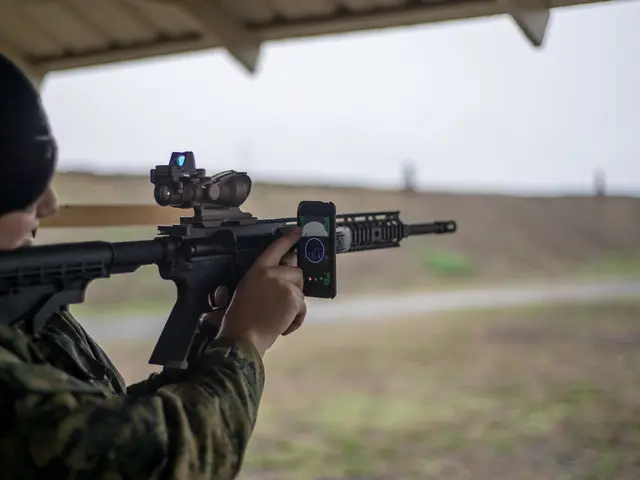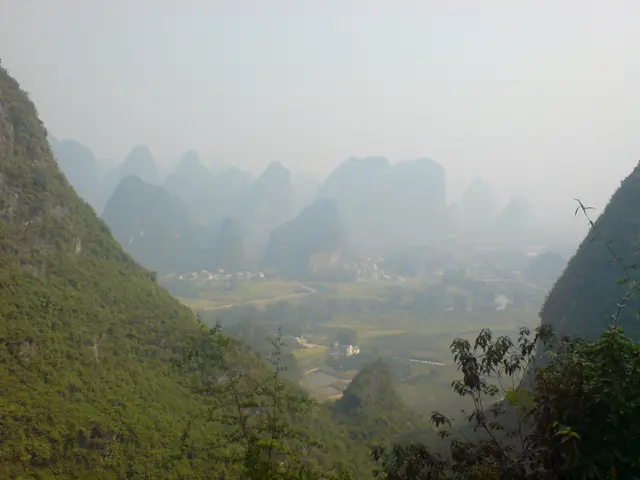Labeling Haiti's Gangs as Terrorists: A Multifaceted Impact on Humanitarian Aid, NGOs, and International Businesses
U.S. terrorism labeling of Haiti gangs may potentially inflict harm on the most susceptible, NGOs cautions.
Embrace the consequences of Washington designating Haiti's main gangs like Viv Ansanm and Gran Grif as terrorists since it might bring unforeseen challenges for humanitarian aid, NGOs, and international corporations.
Last week, the United States took an unprecedented step by designating these violent groups, following similar measures towards Latin American drug cartels. The designation aims to isolate these organizations, prohibiting access to funds from U.S. citizens and companies [1].
Secretary of State Marco Rubio noted, "Terrorist designations play a critical role in our fight against these vicious groups and are an effective way to curtail support for their terrorist activities" [1].
However, the Global Initiative Against Transnational Organized Crime cautioned, "The designation could inadvertently worsen the situation on the ground" [1]. These concerns stem from the potential disruption of aid delivery to communities under gang control, threatening the operations of some humanitarian organizations [2].
NGOs often engage with gangs for humanitarian purposes, such as providing aid to vulnerable populations residing amidst gang-controlled territory. The new designation presents a risk for these organizations, as they could be perceived as supporting terrorism, thus cutting off aid and further elevating dependence on these armed groups [2].
Additionally, international businesses may withdraw from Haiti to avoid potentially violating U.S. law, impacting the commercial backbone of the country. Crippling gang financing could be an effective deterrent, but a strategy that indiscriminately targets individuals and those caught in the gangs' crosshairs risks collapsing the entire Haitian economy [3].
Haiti's Center for Analysis and Research for Human Rights expressed concern, suggesting that drastic actions should focus on tackling the root issues, such as arms trafficking from the United States and the Haitian-Dominican border, to avoid exacerbating gang radicalization [2].
It's essential to strike a balance between addressing criminal activity and preserving humanitarian efforts, international cooperation, and economic stability. The consequences of Washington's designation could inadvertently strengthen gang governance by limiting external oversight and support, perpetuating a lingering humanitarian and security crisis in Haiti [2].
Sources:
- Reuters - U.S. designates Haiti's main gang, Gran Grif, as a terrorist organization
- Devex - Haiti gang designation could inadvertently fuel violence and limit humanitarian aid
- Washington Post - In Haiti, sanctions on gangs may backfire, experts say
- The designation of Haiti's main gangs as terrorists might bring unforeseen challenges for international businesses, particularly those considering pulling out to avoid potential legal violations.
- Labeling Haiti's gangs as terrorists warrants caution, as it could indirectly exacerbate the ongoing humanitarian crisis by limiting external support and oversight.
- Amidst the political and crime-related news, concerns have been raised about the impact of the terrorism designations on humanitarian aid and NGOs working in the Artibonite region of Haiti.
- Remarks from the Global Initiative Against Transnational Organized Crime echo the concern that the labeling of the gangs as terrorists could worsen the current situation, potentially impeding humanitarian efforts.
- In the general news, discussions about the U.S. designations extend to matters related to war-and-conflicts and crime-and-justice, specifically the potential consequences for Haiti's fragile economy and the connected issues of arms trafficking across its borders.
- Humanitarian organizations operating in gang-controlled territories could face increased risk due to the new designations, as they may be perceived as supporting terrorism, potentially cutting off vital aid and further increasing dependence on these dangerous groups.







